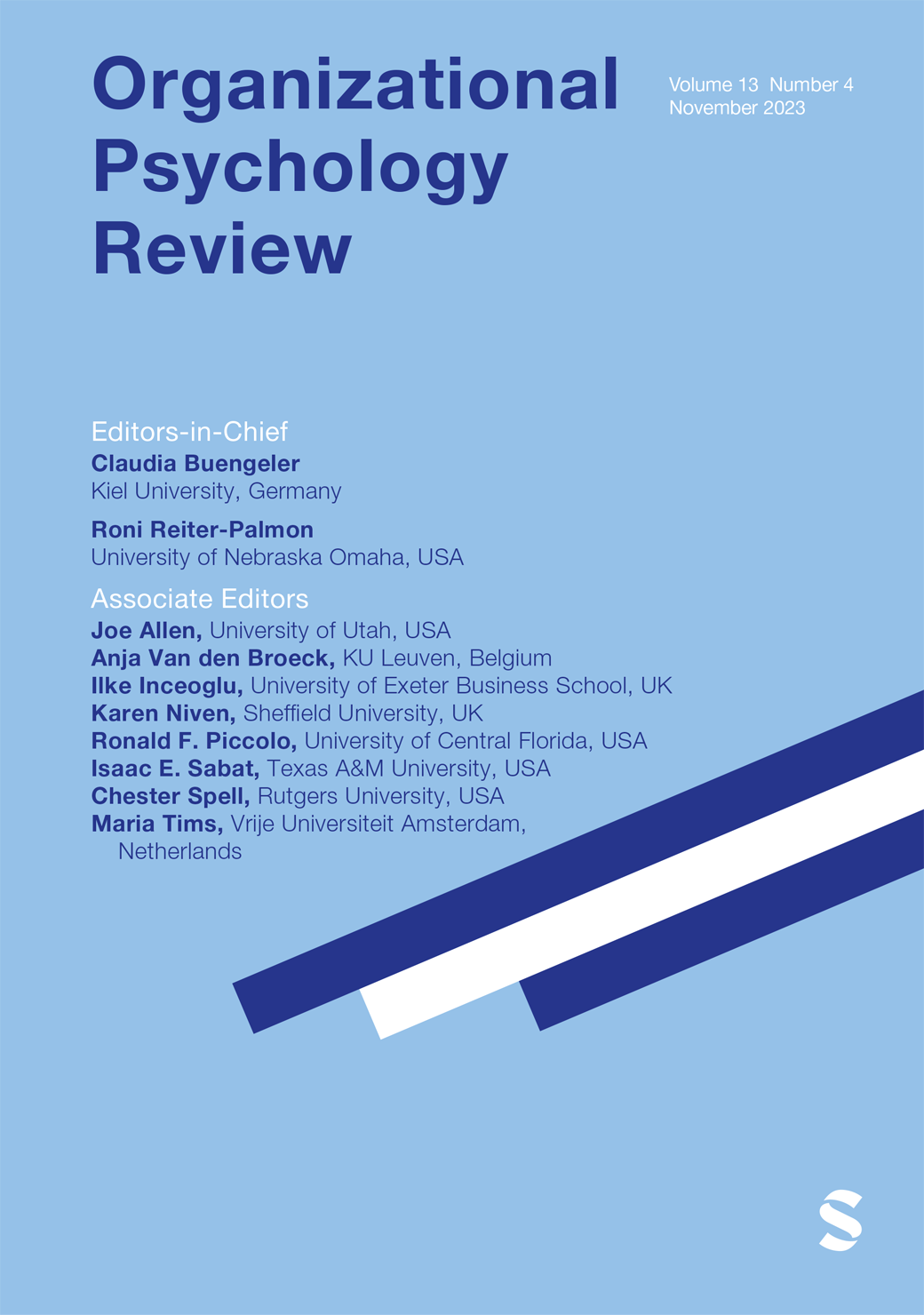Where's the theory contribution? An answer in four parts
IF 7.1
1区 心理学
Q2 MANAGEMENT
引用次数: 0
Abstract
The requirement for a theory contribution in empirical papers causes consternation among some and confusion among many. We address this issue by articulating alternative approaches to theory that include formal modeling, paradigm elaboration, problem solving, and theory emergence from observations. Knowledge about these different approaches will, we believe, help ameliorate disagreement and incomprehension across the research tribes that dominate social science and business school research. Each approach requires different assumptions about truth and the representation of reality. We outline each approach, provide examples, and a short critique. We suggest that what may seem mundane to the critical realist may be eye-opening to the pragmatist who directs attention to practitioners. For the scholar immersed within the walls of a paradigm, a set of stylized facts may challenge and inspire. The secret to innovative theory contributions is to synthesize ideas from the different tribes to use within your own focused research program.理论贡献在哪里?答案分为四个部分
实证论文中理论贡献的要求引起了一些人的惊愕和许多人的困惑。为了解决这个问题,我们阐述了理论的替代方法,其中包括正式建模、范式阐述、问题解决以及从观察中产生理论。我们相信,了解这些不同的方法将有助于改善主导社会科学和商学院研究的各研究部落之间的分歧和不理解。每种方法都需要对真理和现实的表述做出不同的假设。我们概述了每种方法,并提供了实例和简短的评论。我们认为,对于批判现实主义者来说,看似平淡无奇的研究可能会让关注实践者的实用主义者大开眼界。对于沉浸在范式围墙内的学者来说,一系列风格化的事实可能会给他们带来挑战和启发。创新理论贡献的秘诀在于综合不同派别的观点,并在自己的重点研究计划中加以运用。
本文章由计算机程序翻译,如有差异,请以英文原文为准。
求助全文
约1分钟内获得全文
求助全文
来源期刊

Organizational Psychology Review
Multiple-
CiteScore
10.00
自引率
1.60%
发文量
25
期刊介绍:
Organizational Psychology Review is a quarterly, peer-reviewed scholarly journal published by SAGE in partnership with the European Association of Work and Organizational Psychology. Organizational Psychology Review’s unique aim is to publish original conceptual work and meta-analyses in the field of organizational psychology (broadly defined to include applied psychology, industrial psychology, occupational psychology, organizational behavior, personnel psychology, and work psychology).Articles accepted for publication in Organizational Psychology Review will have the potential to have a major impact on research and practice in organizational psychology. They will offer analyses worth citing, worth following up on in primary research, and worth considering as a basis for applied managerial practice. As such, these should be contributions that move beyond straight forward reviews of the existing literature by developing new theory and insights. At the same time, however, they should be well-grounded in the state of the art and the empirical knowledge base, providing a good mix of a firm empirical and theoretical basis and exciting new ideas.
 求助内容:
求助内容: 应助结果提醒方式:
应助结果提醒方式:


